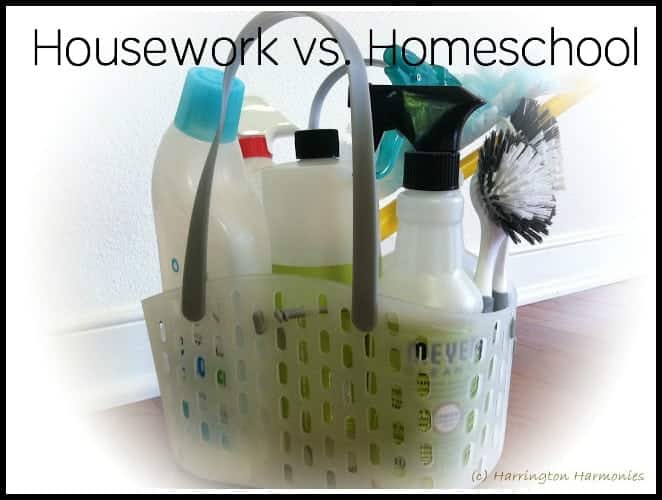Tips for Getting Kids to Do Chores
You’ve laid out a chore system, made nice chore cards, and written lists of things to be done. You’re determined to make this thing work, to get some household help, and to teach your children responsibility. Surely this new system will be the answer for how to get your kids to do chores. So you hand the cards or lists to your children, and they cheerfully clean your house, right?
You and I both know that won’t happen! Buying a new planner doesn’t make you a great time manager. And getting a bunch of baskets and dividers doesn’t make you organized. So let’s talk about the underlying structure that helps get the chores done.
People do better work when they know exactly what is expected. Starting and ending times are essential so your workers don’t drag out the work. That’s a form of passive rebellion, a silent way of saying, “I don’t want to do this, so I’ll show you and take as long as possible so as to inconvenience you.”
Deadlines help us get more done—think about how much you accomplish before you leave for a vacation!
Our morning routine allows an hour and a half for getting up, getting dressed, eating breakfast, straightening bedrooms, and getting chores done. If the house was picked up the night before, the kids usually have a bit of free time before school starts.
Set a timer or watch the clock and specify the ending time—either way, define the expectation. An ending time and a list lets the kids know that there is an end in sight.
You can make a game of chores some days, especially for younger children, but let’s face it, most of the time they just have to do their stuff. As with schoolwork, it doesn’t have to be fun, but it does have to get done.
What do you do when a job is poorly done? First make sure that the job was within the child’s capabilities. There will be times during sickness, stress, or fatigue when you will make some allowances. But usually a poorly done job earns an extra job.
We keep a list of “extra chores” for just such a purpose. If chores are not finished on time, or if a sloppy job is done, the child gets to do an extra chore. This list contains rather unpleasant tasks like washing out trash cans or cleaning baseboards. If time does not permit doing the extra chore right then, it is done before that child can eat lunch or immediately following school hours before free time.
This method of natural consequences prevents rewarding the child who slacks off on responsibility. If there are no consequences for not remaining within guidelines, the child learns that laziness and avoiding responsibility pays. Why work when there are no consequences if you don’t work?
In real adult life, there ARE consequences when you don’t work. Laziness and avoiding responsibility have serious consequences to you, your surroundings, and those you love.
We have a rule in our household that you may not watch a movie, play on the computer, play outside, or play with toys unless your room is clean (not perfectly, but picked-up and not a disaster area) and your chores are done (and schoolwork is done during the school year).
This isn’t enforced perfectly, but pretty consistently. The answer to an inquiry as to whether one can go somewhere or do something is usually: “Is your room clean? Are your chores done?” Or the short version: “Chores and room?”
It would be great if a chore system was The Answer for how to get your kids to do chores, but it all comes back to us. We have to train, teach, inspect, and follow through with consequences. The good news is that this gets easier as you stick with it. Like so many areas of homeschooling and life, it’s progress…not perfection!
Share YOUR tips for how to get kids to do chores!









